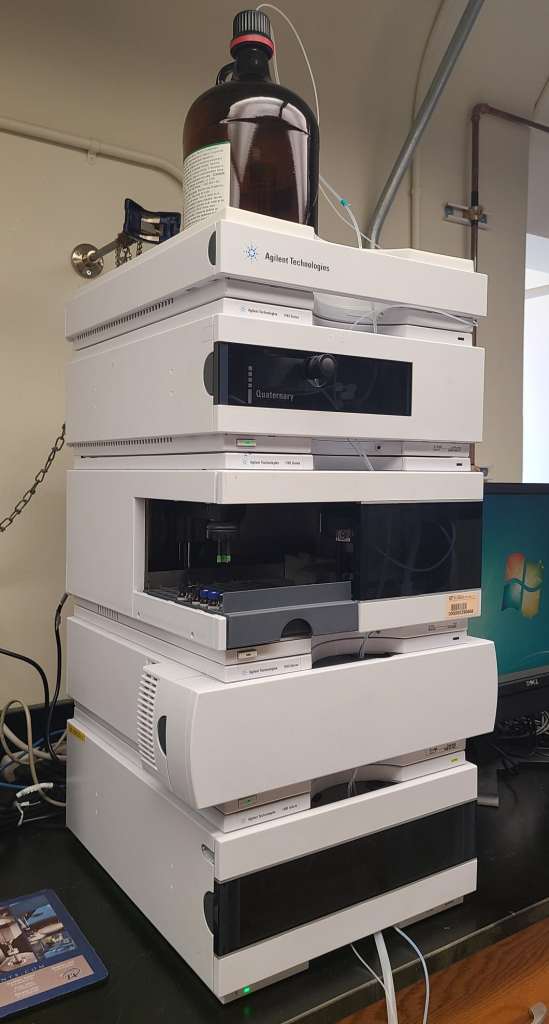
| Stationary phase | Styragel HR-4E (THF system) PL-HFIP gel (HFIP system) |
| Detector | Refractive index (RID) |
| Mobile phase | Tetrahydrofuran (THF), or Hexafluoroisopropanol (HFIP) + 10-20 mM trifluoroacetic acid (TFA) |
| Mass range | 50 Da – 100 kDa (THF) 200 Da – 2 MDa (HFIP) |
| Moiety types (THF) | organic polymers, oligomers, epoxies, polymer additives, phenolics, unsaturated polyester, urea/formaldehyde, polyethylene glycol, ethanolamines, melamine resin |
| Moiety types (HFIP) | Solvent-resistant polymers, polyester, polyamides (nylon), polyethylene terephthalate (PET), poly(lactic-co-glycolic acid) (PLGA) |
Gel permeation chromatography (GPC) is a liquid chromatography method where separation is based on molecule size (instead of chemical properties). Here, the mobile phase rarely, if ever, changes composition, and instead flows isocratically (i.e., same composition) in order to pull the sample components through the stationary phase. The GPC column (i.e., stationary phase) is filled with many pores of various sizes. Smaller molecules can diffuse more deeply into more pores more often, while larger molecules are less likely to enter pores and do not spend as much time diffusing in and out of pores within the GPC column. These diffusion times lead to large molecules eluting first and small molecules eluting last. Because retention time, and thus molecular weight, is dependent on how much time sample molecules diffuse through the column pores, samples should NOT interact with the column’s stationary phase. GPC is most commonly applied to analyzing the relative molecular weights (Mn, Mw) and dispersity (Đ) of polymeric samples.
The tetrahydrofuran (THF) system is compatible with most organic polymer materials containing phenolic, esters, ethylamines, etc. and uses polystyrene (Mp = 580 – 298,600 Da) for standard calibration. The hexafluoroisopropanol (HFIP) system is useful to analyzing solvent-resistant polymers and uses poly(methyl methacrylate) (Mp = 600 – 520,000 Da) for standard calibration.